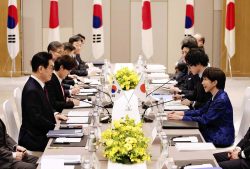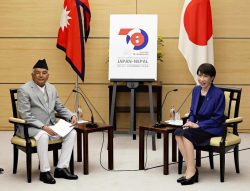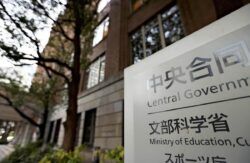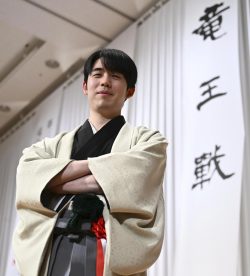Culture Council Approves Draft on AI Training, But Avoids Revisions to Copyright Law

Prime Minister’s Office
21:00 JST, January 16, 2024
As governments grapple with balancing the development of generative artificial intelligence and addressing concerns over copyrights, a subcommittee of the Cultural Council on Monday approved for the most part a draft outline on the use of copyrighted materials to train AI models, but without bringing up possible revision of the Copyright Law.
The subcommittee agreed on the outline presented by the Cultural Affairs Agency, which would specify potential cases of copyright infringement when texts, images or other materials are used to develop and train AI models, as well as other issues.
The Copyright Law currently allows the use of copyrighted materials for AI training without the permission of the copyright holders. But opinions on the subcommittee remain divided on how to interpret what content is subject to copyright infringement. The subcommittee plans to solicit public comments before continuing the discussion, with the aim of reaching a conclusion by the end of this fiscal year in March.
Article 30-4 of the Copyright Law, which was introduced when the law was revised in 2018, in principle allows the use of copyrighted materials for AI training without the need for permission. While it stipulates exceptions, such as when it “unfairly harms the benefits of the copyright holders,” it specifies few cases that would be subject to such exceptions.
The Cultural Affairs Agency draft states that such harmful cases could include actions to bypass a password and other security measures that protect a database intended for future sale for AI training.
However, in the case of newspaper articles, the subcommittee members agreed that the unauthorized use of databases put together for AI training could constitute copyright infringement. But they remain divided over whether individual articles that could be included in a future database should be regarded a potential objects of infringement.
The draft also stipulates that, based on the concepts of the current Copyright Law, a similarity in idea, such as the style of writing or painting, by itself does not constitute a copyright infringement. But some members have expressed concerns, saying this is inconsistent with the current situation in which works based on similar ideas are generated in massive amounts and at high speed by AI.
Some are of the opinion that there should be further study as to whether it is even valid to consider AI technology within the framework of the current Copyright Law.
The draft also includes an example of when the unauthorized use of copyrighted materials for AI training would not be allowed. In this case, the training of an AI model is focused on a specific work for the purpose of intentionally generating text, pictures, music, or other content similar to existing copyrighted materials.
As for whether AI-generated content can itself be recognized as copyrighted material, the subcommittee concluded that the decision should be made from an overall viewpoint that considers the content and amount of human instruction given to AI.
The subcommittee also addressed the serious financial damage caused by spreading international piracy of manga and other content. It pointed out the possibility that, if an AI model is trained from a known pirate website, not only would the AI users be held responsible, but developers and service providers as well.
The Japan Newspaper Publishers & Editors Association, fearing that the unauthorized and unregulated use of copyrighted materials by AI could severely impact media outlets and affect the people’s right to be informed, has called for the government to establish rules with an eye on revising the Copyright Law.
Creators have expressed strong opposition to the unauthorized use of their works for AI training.
“While [the draft] offers interpretations of what could constitute copyright infringement, it is still too lenient,” Ayano Fukumiya, a voice actor and secretary general of the Nippon Anime & Film Culture Association, said in criticizing the subcommittee.
“Someone who wants to train an AI model with copyrighted materials should pay an appropriate price. The law must be revised,” she added.
Top Articles in Politics
-

Japan Tourism Agency Calls for Strengthening Measures Against Overtourism
-

Japan Seeks to Enhance Defense Capabilities in Pacific as 3 National Security Documents to Be Revised
-

Japan’s Prime Minister: 2-Year Tax Cut on Food Possible Without Issuing Bonds
-

Japan-South Korea Leaders Meeting Focuses on Rare Earth Supply Chains, Cooperation Toward Regional Stability
-

Voters Using AI to Choose Candidates in Japan’s Upcoming General Election; ChatGPT, Other AI Services Found Providing Incorrect Information
JN ACCESS RANKING
-

Univ. in Japan, Tokyo-Based Startup to Develop Satellite for Disaster Prevention Measures, Bears
-

JAL, ANA Cancel Flights During 3-day Holiday Weekend due to Blizzard
-

China Confirmed to Be Operating Drilling Vessel Near Japan-China Median Line
-

China Eyes Rare Earth Foothold in Malaysia to Maintain Dominance, Counter Japan, U.S.
-

Japan Institute to Use Domestic Commercial Optical Lattice Clock to Set Japan Standard Time























